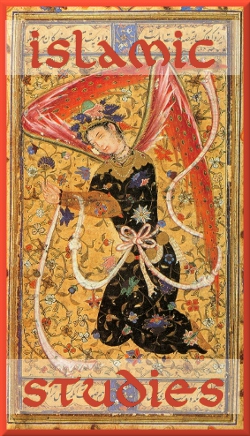Islamic Studies
General Description
 The field of Islamic Studies takes a global, interdisciplinary, and comparative approach to the study of
The field of Islamic Studies takes a global, interdisciplinary, and comparative approach to the study of
Islamic religion and Muslim cultures. Utilizing literary, historical, sociological, anthropological, and other critical approaches, students explore a broad array of Islamic religious traditions, both elite and popular. Students also work closely with program faculty to develop their own particular sub-fields in Islamic Studies.
For more detailed information on the Islamic studies field, see the remarks of Carl Ernst on “Graduate Admission Information for Islamic Studies at UNC.”
Languages
In addition to the requirement of two modern research languages, all students must develop proficiency in at least one Islamicate language (usually Arabic, Persian, Turkish, or Urdu) before taking the Doctoral Examinations. Additional languages may be required by the faculty in the field, and the student’s advisor, depending on the research trajectory of the student.
Doctoral Examinations
All Ph.D. candidates will be expected to pass a set of four Doctoral Examinations. Program faculty members, in consultation with the student, will determine the topics of the examinations based upon the individual needs and interests of the student. In general, written exams will cover the following areas:
- A formulation and interrogation of a problematic in Islamic studies, which both defines and critically examines a series of issues that connect major categories of Islamic thought and practice (e.g., Sufism and reformism, gender studies and the methodologies of Islamic law, Qur’an and literary theory, Shi`ism and performance theory).
- Theory and methodology of Islamic studies, focusing on the general historiography of the field as well as the ways in which scholars in others disciplines (such as anthropology) and in previously marginalized sub-fields (such as Islam in America or Shi`ism) have sought to reconstruct its boundaries.
- The religious history of one geographic region, usually the region in which the student expects to do field research (including, for example, the Middle East, South Asia, Central Asia, or North America). This exam is implicitly comparative in approach, since it requires dealing with non-Muslim religious traditions in the region of choice.
- A thematic examination, focusing on a particular subfield of Islamic studies (such as Sufism, Islamic philosophical and political thought, Qur’anic studies, or Islamic rituals).
Upon completion of the written exams, the student will take an oral examination based primarily on issues raised in the written exams.
Special Resources
One feature of the program is its close cooperation with the Islamic studies faculty from The Department of Religion at Duke University, located just ten miles from Chapel Hill. Graduate students from both programs regularly participate in joint graduate seminars and informal reading groups, and ask faculty from both universities to serve on their examination and Ph.D. committees.
Additional resources for the comparative study of Islam in the area include the following:
Middle Eastern and Islamic Studies programs at UNC and in the Triangle are coordinated by the UNC Center for Middle East and Islamic Studies, housed in the Global Education Center. The Middle East Center collaborates with the Duke University Middle East Center to form theConsortium for Middle East Studies at Duke University and the University of North Carolina at Chapel Hill, a federally funded Title VI National Resource Center. Another affiliated resource is the Duke Islamic Studies Center.
University of North Carolina Press has launched a book series on Islamic Civilization and Muslim Networks edited by Bruce Lawrence and Carl Ernst.
Faculty
Core Faculty
Associated Faculty
Affiliated Faculty
- Charles Kurzman, Sociology (UNC)
- Omid Safi, Asian & ME Studies (Duke)
